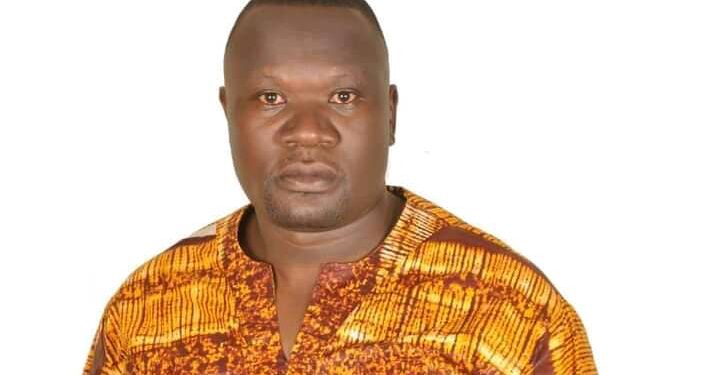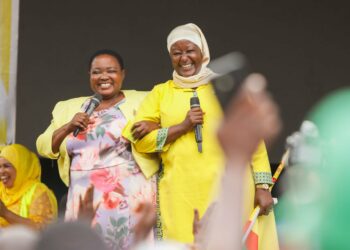The sombre week wherein Teso had to painfully see off two of her powerful politicians in Hon. Patrick Okabe and Bukedea District local council 5 also came with some newsworthy occurrences. Two offsprings of the deceased leaders were announced to take forward the works of their fathers, a thing that’s becoming popular in the country.
Emmanuel Omoding, one of the children of late Okabe has already stepped forward to step into his late father’s shoes as area MP for Serere County in a by-election set to be announced soon as a constitutional obligation. The case was no different in Bukedea where Loyce Okiror, the eldest of late Olemukan’s children will be seeking to step up the challenge to fill the void.
Although this particular trend has been characterising our politics since 2012, there seems to be incomprehensible concerns and worries from a section of the country who fault it as a dangerous thing, especially for the voters who seem coerced into taking on a leader not due to their efficiency but rather out of sympathy.
2012 saw teenage Alungat, then a senior six leaver shoot to the August House following the death of his father in an accident. Several other cases have proceeded this particular case wherein , among others, Late Omoro County MP and Soeaker of Parliament Jacob Oulanyah was succeeded by son, Andrew Ojok in the most recent scenario. There is also Sarah Baroda Kayanga Watongola of Kamuli Municipality who rose following the death of her mother, Hajjati Rehema Watongola.
The scenes at the send off of the two prominent Teso politicians should, thus, not be ones to cause lots of concerns. The only questions would be about the suitability of the candidates fronted for the task in comparison to their fallen fathers and mothers. Are the voters really coerced into choosing as opposed to freedom to willfully judge?
My answer is an absolute “NO”. First of all, the person usually chosen is one among the members of the same community, 18 years old or above and bearing the required academic requisite requirements to suffice the constitutional mandate. Secondly, and most importantly, they are screened by the Electoral Commission to ascertain suitability and thereafter, presented for campaigning before voters to make an informed decision. Although there have been rare occasions where such candidates have failed, they have often been voted out on their second attempt where they have failed to live up to the expectations of the people they are sent to represent.
This, thus gives reason to worry not. These are often not traditional coronations that are not to be altered. The same leaders will always be presented to the voters after four, three, two or one year to be reassessed on suitability as per their report card from the floor of Parliament, or any other designation lower.
Yet this is not a thing for Uganda as many have since been characterising it. In May, 2015,Togo, a country of 3.5 million people then, voted for incumbent president Faure Gnassingbé for a third time. Gnassingbé is the son and immediate successor of Togo’s fifth president—Gnassingbé Eyadema—and, had he served out his third term to compeletion, his family would have run Togo for 48 years.
In light of this latest development and as the continent moves toward more closely contested elections, it might be time to quickly reflect upon the current status and trends of family political dynasties in sub-Saharan Africa. The first question is: Is Africa different from the rest of the world?
Political dynasties exist around the world. In the United States in 2001, George W. Bush became the first modern president whose father (president George H.W. Bush) had also been elected president. (The sixth president, John Quincy Adams, served from 1825-1829 and was the son of the second president, John Adams.) Bush also became the first U.S. president to hold the position for longer than his father.
In East and South Asia, there have been many daughters of heads of state who have been elected to the same position, such as South Korean president Pak Geunhye, former Philippines president Corazon Aquino and former Indian Prime Minister Indira Gandhi. In Pakistan, in a rare occurrence, a husband took over from his wife, Benazir Bhutto. Clearly, we should be wary of characterizing political dynasties as an African phenomenon. However, given the vastly maledominated world of African politics, what do we know about African fatherson presidential transitions and legacies?
Succession: By birth or competition
The experiences of the U.S., the Philippines, and South Korea seem to indicate that citizens are willing, through a contested process and based on an individual’s merit, to elect family members of former heads of state. Notably, in cases like these, usually the family members do not immediately follow their parent; there is a time lag between the two.
Africa has a more mixed experience. Seven countries on the continent have had both father and son (and one brother) lead the country: Botswana, Kenya, the Democratic Republic of the Congo (DRC), Gabon, Togo, Mauritius, and Malawi (Morocco and Swaziland are excluded from the list since they are kingdoms). In each of these cases, the succession process has been different, as has the interim between father and son.
Three sons of a founding father (the first president or prime minister after independence) have recently been in power in Botswana, Kenya, and Mauritius—president Ian Khama, President Uhuru Kenyatta, and Prime Minister Navin Ramgoolam, respectively. In the case of all three, the succession took place over a decade after the father left office: In Botswana, Khama was elected 27 years after his father left office, while in Kenya, Kenyatta was elected 34 years after his father, and, in Mauritius, Ramgoolam was elected 13 years after his father. Therefore, enough time had elapsed in which citizens could assess the impact and results of the father’s leadership and make an informed decision regarding the son.
By the time the sons became president, the three countries had a history of contested elections, and each one took over in generally peaceful elections and under stable constitutions. Malawi’s president Peter Mutharika similarly was elected president years after his brother’s death in office.
On the other hand, some sub-Saharan countries have experienced immediate succession by the son of the head of state after his father’s death, often leading to decades of rule by a single family. With president Gnassingbé’s reelection, his family would have have run Togo for over 87% of its 55-year post-independence history(had h3 nit been ousted shortly after) with five more years to go. Gabon has a similar experience: With a father and son at the head of the country for over 86 percent of the country’s post-independence history (1967-2009 and 2009-2015)—47 years out of almost 55 years—and the son is still in power.
In the DRC, president Joseph Kabila came to power in 2001 immediately following the untimely assassination of his father. Altogether, the Kabilas have ruled the DRC for a third of the country’s post-independence history—almost 18 years.
The Rangoolam family of Mauritius has similarly ruled the country for over half of its independence history, for 20 out of 39 years. However, as noted above, succession was not immediate from father to son but rather through a contested process with two leaders in between.
So, given the mixed experiences of these African countries, can we identify a trend on the continent? The automatic succession of sons does not seem to be the norm. There have been over 38 cases on the continent where the leader passed away in office, and sons have succeeded their fathers in only three. Over the last decade there have, however, been two contested elections that involved the son and brother of a former president—Kenyatta in 2013 and Peter Mutharika in 2014.
Increasingly, countries have put in place constitutional provisions to handle the passing of the president or are respecting constitutional provisions from earlier constitutions such as in Nigeria, Ghana, Zambia, and Ethiopia, all countries who have seen their presidents pass away and whose transitions have been handled in a smooth and constitutional way. It seems that the passing of presidents has not generated prolonged political instability on the continent.
Africa does not have a monopoly on family political dynasties. However, to guard against the creation of birth-right dynasties as opposed to merit-based family political dynasties, recent events suggest that countries should and must have clear constitutional processes for succession as well as open transparent freely contested elections. In Kenya, Mauritius, and Botswana where this has happened, the sons of past leaders are trying to keep the memory of a past not yet forgotten alive. History will determine which sons carry the day and how Africa’s president’s sons are treated in the future.
The writer is the Deputy RCC Soroti East Division
Do you have a story in your community or an opinion to share with us: Email us at editorial@watchdoguganda.com













